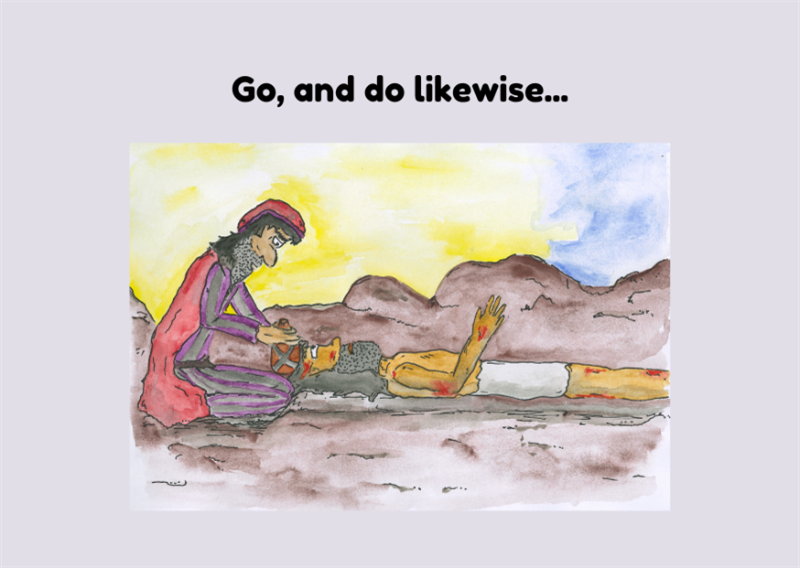16th February 2025

"Go, and do likewise..."
Generosity and Crossing Boundaries
Last Sunday, 9th February, was Racial Justice Sunday, set aside by many churches across Britain to reflect on and commit to praying and working for racial justice. Not liking to follow the crowd, at HTSJ, we will be taking time this coming Sunday for our own reflection and prayer.
The Bible tells us that every human being without exception is fearfully and wonderfully made in the image of God (Psalm 139 and Genesis 1). Every human being without exception has innate value and dignity because we all, whatever the colour of our skin, bear the image of God within us. And yet, we know that this is not the story or experience of many. Humans have become experts at putting up boundaries, separating people into in and out, good and bad, those like us and those not like us.
God, in his generosity towards us, is the God who crosses boundaries. The author of the letter to the Colossians tells us that, in Christ, "God... was pleased to reconcile to himself all things" (Colossians 1:20). In the letter to the Ephesians, the author expands on this to describe the work of Christ as being to break down every wall, "that is, the hostility between us." (Ephesians 2:14). God is not concerned with who is in and who is out. God's work in Christ is to reconcile, to invite all of us in.
A teacher of the law once questioned Jesus on this (Luke 10:25-37). "What must I do to receive eternal life?" he asked and, when Jesus pointed him to God's commandments - love of God and love of neighbour, he asked "But who is my neighbour?" Jesus in reply told a story, the famous story of the Good Samaritan. Why is this story powerful? Because Jews and Samaritans hated each other. There were long-standing political and religious causes of this racial hatred, going back centuries, but the result, as we see in John's gospel (ch 4), by the time of Jesus, is that Jews and Samaritans do not share things in common, do not associate.
In this story, of course, it is not the religious leader, nor the teacher who go to the aid of the Jewish man who has been beaten up on the road to Jericho. The one who shows love, the one who cares sacrificially and generously for him, is the Samaritan. It is the Samaritan who sees beyond religious, cultural and physical differences to the image of God, bruised and battered though it may be, in the man left for dead at the side of the road. It is the Samaritan who is willing to cross political, cultural, religious boundaries in order to show divine love.
Jesus concludes this story with a very simple challenge: "Go, and do likewise."
